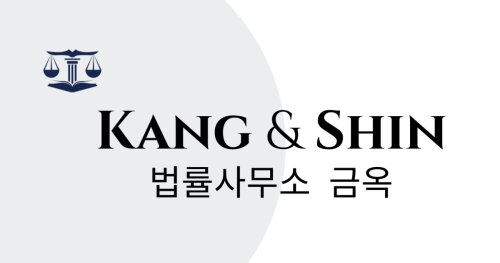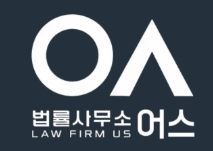Best Labor Law Lawyers in South Korea
Share your needs with us, get contacted by law firms.
Free. Takes 2 min.
Or refine your search by selecting a city:
List of the best lawyers in South Korea
About Labor Law in South Korea
Labor Law in South Korea is a set of legal standards designed to regulate the rights and duties of businesses and their employees. The legal framework aims to ensure just and equitable conditions of employment, protect worker rights, and promote safe and healthy work environments. Key acts include the Labor Standards Act, the Minimum Wage Act, the Industrial Safety and Health Act, and the Trade Union and Labor Relations Adjustment Act. These laws apply to all businesses operating within South Korea, irrespective of the size and sector of the organization.
Why You May Need a Lawyer
There are several situations where individuals or businesses may require legal assistance in the realm of labor law:
- Employment Contracts: Reviewing or negotiating terms to ensure compliance with labor standards.
- Workplace Disputes: Addressing issues such as unfair dismissals, discrimination, harassment, or retaliation.
- Health and Safety Violations: Ensuring workplaces adhere to safety standards and regulations.
- Wage Issues: Dealing with matters related to minimum wage compliance, overtime pay, and other compensation-related disputes.
- Union Activities: Navigating the complexities of union formation and collective bargaining situations.
Local Laws Overview
South Korea's labor laws are comprehensive and touch upon various aspects of employment relations. Some key aspects include:
- Labor Standards Act: Sets the minimum standards for working conditions, including work hours, breaks, and holiday entitlements.
- Minimum Wage Act: Mandates a legally enforceable minimum wage that is periodically reviewed and adjusted.
- Industrial Safety and Health Act: Promotes safe working environments through preventative measures and regular inspections.
- Trade Union and Labor Relations Adjustment Act: Governs the rights of workers to form unions and engage in collective bargaining.
Frequently Asked Questions
What is the standard working week in South Korea?
The standard working week is 40 hours, with a maximum of 12 hours allowed for overtime, bringing the total to 52 hours.
What should I do if I face workplace harassment?
South Korea has laws protecting employees from workplace harassment. Victims can file complaints with labor offices or seek legal advice to address the issue.
What is the current minimum wage in South Korea?
The minimum wage is periodically reviewed and adjusted; as of 2023, it is 9,620 KRW per hour. Check official sources or legal advisors for updates.
Are there laws about maternity leave in South Korea?
Yes, female employees are entitled to 90 days of maternity leave, with the cost shared between the employer and government.
Can foreign workers join a union in South Korea?
Yes, foreign workers have the right to join unions and participate in union activities just like local workers.
What are the compulsory benefits an employer must provide?
Employers must provide benefits such as health insurance, employment insurance, national pension, and industrial accident compensation insurance.
What can I do if my employer doesn't pay overtime?
You can file a complaint with the local labor office or seek assistance from a legal professional to claim unpaid wages.
How are taxes handled for employees?
Employers typically withhold income taxes from salaries and remit them to the National Tax Service. Employees must also file annual tax returns.
What is included in a severance package?
Severance pay in South Korea is generally calculated based on the employee's pay and length of service, typically amounting to one month's salary for each year of service.
What are the employees' rights regarding termination notices?
Employers must provide at least 30 days' notice or compensation in lieu of notice. Exceptions are made for cases of serious misconduct.
Additional Resources
The following resources can provide further assistance:
- Ministry of Employment and Labor: The government body responsible for labor policies and regulations.
- National Human Rights Commission of Korea: Offers resources for addressing workplace discrimination and harassment.
- Korean Bar Association: Can help find qualified labor lawyers for legal advice and representation.
Next Steps
If you find yourself needing legal advice regarding labor laws in South Korea, consider taking the following steps:
- Identify the specific labor issue you are dealing with to tailor your search for legal help.
- Consult the Ministry of Employment and Labor's resources to understand your rights and obligations.
- Contact the Korean Bar Association for recommendations on experienced labor law attorneys.
- Prepare all relevant documentation, such as employment contracts, pay slips, and any correspondences related to your case.
- Schedule consultations to discuss your situation and explore potential legal actions or resolutions.
Lawzana helps you find the best lawyers and law firms in South Korea through a curated and pre-screened list of qualified legal professionals. Our platform offers rankings and detailed profiles of attorneys and law firms, allowing you to compare based on practice areas, including Labor Law, experience, and client feedback.
Each profile includes a description of the firm's areas of practice, client reviews, team members and partners, year of establishment, spoken languages, office locations, contact information, social media presence, and any published articles or resources. Most firms on our platform speak English and are experienced in both local and international legal matters.
Get a quote from top-rated law firms in South Korea — quickly, securely, and without unnecessary hassle.
Disclaimer:
The information provided on this page is for general informational purposes only and does not constitute legal advice. While we strive to ensure the accuracy and relevance of the content, legal information may change over time, and interpretations of the law can vary. You should always consult with a qualified legal professional for advice specific to your situation.
We disclaim all liability for actions taken or not taken based on the content of this page. If you believe any information is incorrect or outdated, please contact us, and we will review and update it where appropriate.
Browse labor law law firms by city in South Korea
Refine your search by selecting a city.















